|
The time has come again to share some thoughts on all of the books I read this year. I made a goal to read 23 books and unfortunately fell short at only 19, but I still read some great books this year and am looking forward to sharing them with you. I missed my halfway check in back in June because I was in the middle of my Young Indiana Jones rewatch, so I will recap briefly all 19 books here. In addition, I will star the books that I recommend the most from the year! Here it goes in the order that I read them:
Take Back Your Family: From the Tyrants of Burnout, Busyness, Individualism, and the Nuclear Ideal by Jefferson Bethke There were a lot of great ideas to digest in this book and it helped me see family in a little different light. A year later I'm still processing how to put into practice some of the concepts from this book. Convergence by Zoraida Cordova The flashback era of The High Republic novels started just ok and kind of set a mediocre tone for the whole time period. Dune the Graphic Novel, Book 2: Muad'Dib by Brian Herbert and Kevin J. Anderson Another excellent adaption of the middle third of the original Dune novel, following in the footsteps of Book 1. The Thing Beneath the Thing: What's Hidden Inside by Steve Carter I am a huge fan of Steve Carter and this book contained a lot of great thoughts about how we inwardly and outwardly deal with our own problems. ***Nehemiah for You by Eric Mason*** I read this book as part of a group study and would definitely recommend it. I love to hear thoughts on the Bible from someone other than a white male, and Mason made Nehemiah interesting and accessible. The Battle of Jedha by George Mann (Audio Drama) I love the Star Wars audio dramas in whatever era they are set in, and this one had some great action. Cataclysm by Lydia Kang Another just ok entry in the phase 2 stories of the High Republic. ***Morning Star by Pierce Brown*** The Red Rising series has been one of my all time favorites, and while the first half of this novel dragged a little, the second half was fantastic. ***The Odyssey of Star Wars: An Epic Poem by Jack Mitchell*** This book was a combination of two of my most favorite things in the world: Star Wars and ancient epic poetry. There is really nothing else I need to say about it. Maybe my book of the year. ***Dune Messiah by Frank Herbert*** Most people end their Dune journey with the first novel, but they are missing out in a huge way by not reading Dune Messiah. This book managed to make little amounts of action compelling through deep and interesting dialogue. Also one of my top books of the year. Path of Vengeance by Cavan Scott Fortunately, this book ended Phase 2 of the High Republic books quite well. Lots of great Star Wars action and interesting conflicts. The Lost Hero: The Graphic Novel by Robert Venditti, Rick Riordan, Nate Powell I enjoyed rereading this book through the graphic novel treatment. ***Fortune: How Race Broke my Family and the World--and How to Repair It All by Lisa Sharon Harper*** Lisa Sharon Harper is a treasure of an author, and I will continue to read anything she publishes. She managed to narrate the trauma and horror of her family history in a powerful and beautiful way. The Son of Neptune: The Graphic Novel by Robert Venditti and Rick Riordan Same thoughts as above for The Lost Hero. From a Certain Point of View: Return of the Jedi by Various Authors I have enjoyed all of the Star Wars anniversary anthologies. As a huge fan of the Jabba's palace scene, I particularly enjoyed several stories diving deep into background characters. The Mark of Athena: The Graphic Novel by Robert Venditti and Rick Riordan Another fun graphic novel adaptation. I particularly have enjoyed reading these while my son reads the full series for the first time. The Silmarillion: Illustrated Edition by J.R.R. Tolkien I read The Silmarillion over the course of the year with a slow and methodical reading plan. I think that might be the best way to read this dense and crunchy work of Biblical proportions. American Idolatry by Andrew L. Whitehead A great addition to the growing pantheon of books using a critical eye at some of the traditions of American Christianity. I found some of the content of the book redundant from other books I have read recently, but this is a great intro to the deconstructing American Evangelicalism genre. The Eye of Darkness by George Mann The first book in the final phase of High Republic novels and by far the best in my opinion. I breezed through this book because it was so fun to read and felt like watching a Star Wars movie.
0 Comments
2022 has come and gone, and so it is time to finish recapping my reading list for this year! My goal for the year was 24 books, which I missed by two, unfortunately. The second half of the year saw a massive slowdown in my reading rate thanks to the school schedule and a full load of three children around my house. So, starting with July and working through the end of the year, here is what I read and a few thoughts for each.
Lore by Alexandra Bracken I am always down for an interesting retelling of Greek myth, and this one did not disappoint. Set in modern New York City, this is Percy Jackson for a more mature audience. Definitely enjoyed this one. The Electric Kingdom by David Arnold I kind of forgot I read this book until I made this list, if that says anything, but this was a unique take on the dystopian genre through the lens of childlike hope and wonder at the world. The Very Good Gospel: How Everything Wrong Can Be Made Right by Lisa Sharon Harper Lisa Sharon Harper has a beautiful and much needed voice for the Christian community. This book was a fresh reminder of the importance of the gosepl for ALL and how the gospel can influence and make change in every aspect of our private and public lives. Shadow of the Sith by Adam Christopher The first Star Wars novel on the list, and also one of my biggest disappointments for the year. When I heard there would be a novel about Luke and Lando having an adventure together, which would tie in some elements from the sequel trilogy, I was intrigued. Unfortunately, the book was less than intriguing. Love Matters More: How Fighting to be Right Keeps us from Loving Like Jesus by Jared Byas I have long been listening to Jared on the Bible for Normal People Podcast, but this was the first book of his I have read. This book was a great reminder about the HOW of our theology far outweighing the WHAT of our theology. Path of Deceit by Tessa Gratton and Justina Ireland As the first book in the new phase of the Star Wars High Republic publishing initiative, it did a great job of piquing my interest for the direction of the story. Interesting characters and a new way to think about the Force. Project Hail Mary by Andy Weir I loved The Martian, but this book was very different in a great way. While The Martian dives deep into science and math for survival, this story reminds us of the importance of relationship and cooperation, making it far more human (with lots of math and science stuff too, which I kind of glossed over). The Art of Star Wars: The Mandalorian Season 2 by Phil Szostak The Star Wars art books are always amazing, and I love to see the evolution of the design process in visual creative efforts. Inalienable: How Marginalized Kingdom Voices Can Help Save the American Church by Eric Costanzo, Daniel Yang, and Matthew Soerens A great book to finish the year on, this fairly short but densely packed book summed up what I have been learning about and thinking about for the last couple of years. The American church will not survive without the voice of global Christians and marginalized communities in prominent leadership and discipleship roles. What have you been reading that has been fun, challenging, or educational? It is one of my favorite days of the year because I take a few minutes to sit down and share thoughts about all the books I have read so far. My reading goal for this year is 24 books, and I am on decent track right now to finish, sitting at about halfway to my goal. Starting back in January and up until today, here are the books I have read and a few thoughts about each.
1. Babylon's Ashes by James S.A. Corey The Expanse is my favorite sci-fi book series right now, but this was probably my least favorite in the series so far. The ending was tense and fantastic, but the rest felt a little like it was stalling to fill the book. 2. Station Eleven by Emily St. John Mandel I did not watch the miniseries adaptation of this book, but I thought the book was excellent. If you are up for a novel about a pandemic that wipes out most of human population, this is an excellent read. I found it incredibly hopeful in a sea of hopeless sci-fi/dystopia. 3. The Fallen Star by Claudia Gray The last novel in the current phase of Star Wars High Republic books, I found this novel thrilling, suspenseful, and sad. I continue to say that some of the most exciting storytelling in Star Wars right now is happening in the publishing world. 4. How to be an Antiracist by Ibram X. Kendi This was a required read for work this year, but one I willingly chose out of several options. I learned a lot and found a lot to ponder about how race intersects with so many different parts of society. Definitely not a book to breeze through without processing. 5. Scythe by Neal Shusterman Within the Young Adult sci-fi genre there are a lot of tropes that are somewhat tiring at this point, but I am happy to say that this book weaves an interesting and compelling story without relying heavily on the standard tropes. 6. The Cruel Prince by Holly Black Thanks to our school library's Lit Loot box initiative, I got my first taste of Faerie fantasy this year. I will say that I generally am not a fan, although I appreciated reading stories from the perspective of female characters, as it gave me a different flavor of fantasy than I am used to. 7. Wholehearted Faith by Rachel Held Evans, Jeff Chu I have been a fan of Rachel Held Evans' books for a while, and her tragic death was a blow to Christianity. This book was published posthumously, and while there was not a lot of new material or ideas here, it was nice to have a refresh of some of Evans' thoughts. 8. A Court of Thorns and Roses by Sarah J. Maas I will echo my thoughts from #6 above. I did like this one slightly more than The Cruel Prince, however. 9. Midnight Horizon by Daniel Jose Older This Young Adult Star Wars novel had a few great moments, but I overall found the book just average, without adding much to the ongoing storyline of the High Republic. 10. Queen's Hope by E.K. Johnston I really enjoyed the first two Padme Amidala novels by Johnston and had high expectations for this novel set in the middle of the Clone Wars, but the main storyline was mostly uninteresting. The side plot about Anakin and Padme's marriage was far more interesting and could have made for a more unique entry into Star Wars canon. 11. How to Fight Racism: Courageous Christianity and the Journey Toward Racial Justice by Jemar Tisby Really the main thing I need to say about this book is that Jemar Tisby is a treasure and should be required reading for everyone who considers themselves part of the Christian faith. For that matter, it doesn't matter what faith you are, this book is so practical and helpful that it is a must read. 12. Brotherhood by Mike Chen I read a lot of Star Wars novels, and most of them are good with flashes of greatness, but I loved this brand new novel set during the Clone Wars and exploring Obi-Wan and Anakin's friendship after Anakin's promotion to Jedi Knight. The novel explores the ethics of war and the nature of human relationships all while telling a really great story. 13. Parenting Forward: How to Raise Children with Justice, Mercy, and Kindness by Cindy Wang Brandt This book is a great intro to some ways to approach parenting in our current complex world. I thought the book was a great, basic overview of a lot of ideas, but I would have loved a deeper dive into some of them. What have you been reading so far this year? I would love to hear your recommendations! It's that time of year again! Halfway through 2021 means halfway through my reading list for this year and a time to pause and share the most memorable aspect of each book. As I was looking through the list, I noticed some patterns: a lot of Star Wars and theology. I plan to remedy that a little for the second half of the year. With that said, here are the books I have read so far this year in chronological order.
1. Light of the Jedi by Charles Soule This book is part of the new Star Wars publishing initiative set a thousand years before the prequels. For an entirely new era of storytelling and completely unfamiliar characters, it had me pretty intrigued. 2. Lost Stars, Vol. 1-3 by Claudia Gray and Yuusaka Komiyama Lost Stars was originally a Star Wars YA novel, but this was the manga version of it. This was my first time reading a manga, and I think I will remember more about trying to figure out how to read it than the actual storyline. 3. Remember God by Annie F. Downs I have become a fan of Annie through various podcasts, and this book is a great time spent with a great storyteller. 4. Dune by Frank Herbert While not the first time I have read this novel, I remembered literally nothing besides sand worms from the last time I read it. I understand why it is a classic, but sometimes the plot is a little too dense and convoluted for its own good. I'm still trying to decide whether to read more in the series. 5. The Sin of Certainty by Pete Enns The first of two books by Enns I read this year, this was probably the one I found the most impactful. The message of relying on trust instead of certainty when it comes to our faith made me think deeply about my own faith and will probably continue to impact my spiritual life long-term. 6. The Odyssey, trans. Emily Wilson I have read the Odyssey many times, but this new translation by Wilson was fresh and invigorated with modern language and poetry. Great stuff! 7. The Making of Star Wars: Return of the Jedi by J.W. Rinzler I finally made my way through all of the "Making of" books for the original Star Wars trilogy, and this one was equally awesome and in depth, especially if you are a fan of how movies are made. 8. Open to the Spirit: God in Us, God with Us, God Transforming Us by Scot McKnight I continue to grow more and more fascinated by Holy Spirit and their place in the trinity as well as our everyday lives. This books was a great primer on how to be more open and aware of the way Spirit moves in us. A challenge for me for sure. 9. Victory's Price by Alexander Freed The Final book in the Alphabet Squadron series (Star Wars novels about a fighter pilot squadron), and it did not disappoint. The whole series did a great job depicting the feel of life as a starfighter pilot. 10. Into the Dark by Claudia Gray Another Star Wars book in the new High Republic era of stories, but this one I actually listened to via audiobook, which is actually pretty rare for me. Despite being a YA novel, I enjoyed the story quite a bit. 11. Art of Star Wars: The Mandalorian by Phil Szostak Art of Star Wars books are amazing, and there is really nothing else to say. 12. Cinemaps: An Atlas of 35 Great Movies by Andrew DeGraff and A.D. Jameson I remember hearing about this book many years ago and finally got around to grabbing it from the library. The book is a compilation of an artist who turned famous movies into maps with colored lines to trace the paths of the characters. The premise is very cool and unique, even if the maps were sometimes a bit tricky to follow. 13. The Cross and the Lynching Tree by James H. Cone If you want to start dipping your toe into Black theology (which you should), this is an excellent place to start. The idea that lynching is a modern parallel to the cross is one that needed this kind of exploration and makes me sad that I was never exposed to this idea in my 38 years of life. 14. How the Bible Actually Works by Pete Enns I finished this book in the nick of time, the final hours of June 30, and it is a great, accessible exploration of the idea of using wisdom as the framework for how the Bible works. I highly recommend this if you are interested in exploring the Bible further. Happy reading! Back in June I posted about all the books I read for the first half of the year, and since we are now into a new year, it is time to follow up with the back half of the year. Last January I made a goal to read 23 books this year. I had slowly been making my way back to pre-children reading levels when I read 30-40 books a year, so I thought 23 was a reasonable goal. Then, the pandemic hit, and I blew that goal out of the water with a total of 35 books read in 2020. I actually delayed this post until today, hoping that I could finish one of the two books I was reading, but neither came to fruition. Nevertheless, I am ecstatic that I was able to finish so many books this year and work and parent full time.
I will follow the same format as my June post, with one or two sentences about what impacted me from each read. Feel free to use the comments to further the discussion about any of the books that stood out to you or you also enjoyed. Without further rambling, here is my reading list from July 1, 2020 to December 31, 2020. Children of Virtue and Vengeance by Tomi Adeyemi
Thanks for sticking around to the end, and I hope that there might be something on this list worth checking out in 2021! I decided to be reasonable and keep my goal at one higher than last year (24 books), since we have a new baby coming this year, so check back at the end of June for the midyear update! I love to read. When businesses started opening up again (for the context of this comment, look up the year 2020 in your history book someday), I was most concerned about when I could get to the library. I have the Goodreads app on my phone and regularly keep track of all the books I read throughout the year, set reading goals, and put together lists of books that I need to read. Occasionally I will even write a review for a book on Goodreads, but more often than not, I give it a star rating and move on to the next.
Recently inspired by a couple of my cousins who shared their reading lists on social media, I thought this blog might be a good platform to start a tradition of checking in twice a year with the books I read and how each book impacted me. I do not intend for this to be a review of the book or whether it was good or bad. Rather, I intend to use this space to share how the book impacted me on a personal level. If you want to see my rankings of books, let's be friends on Goodreads! Maybe this can even be a space where everyone can share some other great recommendations of how books make their life better. In chronological order and no more than two sentences (mostly), here are the books I read for the first half of 2020. Star Wars: The Rise of Skywalker: The Visual Dictionary by Pablo Hidalgo
If you made it this far, have you read any of these books? What did you think? What have you read this year? Anything that impacted you in some way? Let's share in the comments! About five years and two months ago, an event happened in the St. Louis area that incited something inside I did not know was there. I distinctly remember the news of Michael Brown's death spreading throughout the metro area, resulting in the acquittal of the officer who shot him right before Thanksgiving break. For the first time in my life (unfortunately, as I look back now), I was confronted with the reality of racism in America, and I did not know what to do with it.
I felt ignorant. I felt sad. I felt angry. I felt confused. What was the correct narrative in all the coverage? Where did I stand on issues of race of which I was so blindly unaware? These questions began to gnaw deep inside of me for the next couple of years as I led some of my students through difficult conversations about how to process the aftermath of the Ferguson protests, even as I did not know the answers to my own questions. Two years later, we were facing the most divisive and hateful season of election campaigning I had ever witnessed. Racial tensions were even higher than before, people were (and still are) getting angry about football players taking a knee, and my own feelings of discontent, unease, and anger were overwhelming me. Mostly, I felt helpless to face a problem that seemed hopeless and unfixable. I got to the point where I had to make an action step. I had heard enough podcasts dancing around the topic of racial tension in America, and I had heard the names of a few authors worth checking out, so I did what I often do when confronted with a problem, I turned to books. Books provided a way for me to engage with authors from the Black community and learn from a perspective I minimally encountered for 30+ years. One of those books has so profoundly impacted me that I have to share some thoughts about it. Thanks to my role as a volunteer in my local church's bookstore, every year I can complete training and get a voucher for some free books. I had heard about The Color of Compromise through some other media outlets and discovered that it was available with my free book voucher. The decision was a no-brainer. The Color of Compromise by Jemar Tisby is primarily a survey of the American church's history with racism and the various levels of complicity it has exhibited beginning with the Colonial era and leading up to the present day. Much of the history in the book was not new to me, but what struck me as the most profound was the often overlooked moderate Christians. To sum it up, one of the theses of the book was that the lack of action on the part of moderate Christians and churches throughout history actually served as complicity in the propagation of racist social structures and ideology. Unfortunately, I resonated with that. Tacit complicity was part of my story, and I had never been aware of it until recently. To add to that, several other experiences in my life the past two years have led me to an understanding of my own privilege. With all of this knowledge, I could not keep silent anymore. Toward the end of the book, Tisby has a chapter about racial tension in our present world, and he gives some practical suggestions about how to address the "What do I do" question I have been asking the last five years. On pages 194-197, He gives the acronym ARC (Awareness, Relationships, Commitment) as a system for racial justice. I have been in the Awareness category for a couple years now, but I wanted to take another step. While talking about Commitment on p. 196, Tisby says "write a blog post." When I read those words I had that uncomfortable feeling you get when you know you need to do exactly what you just read or heard, but you are a little scared. Yeah, that one. So, here is that post. I have been sitting on it for a few months now, hemming and hawing about putting off writing it, knowing that not everyone might agree with some of the ideas in the post, but also knowing that I cannot keep silent in the conversation. If reading The Color of Compromise taught me anything, I am not ok with being complicit with racism, and I challenge all of my friends and family, in the church and outside the church to stop being passive and to confront some ideas about their own privilege and the privilege of the American church. If you want some more recommendations of media to check out regarding the topic of racism in church circles, check out the book I'm Still Here: Black Dignity in a World Made for Whiteness by Austin Channing Brown and the podcast The New Activist, which is produced by International Justice Mission and includes episodes on a variety of justice and slavery topics, including race. I am also more than happy to engage further in conversation and would love to hear resources you are currently exploring. Let's keep this a conversation that the church stops disengaging or ignoring altogether. |
AuthorI love my family and this is the place to find all of the adventures we experience. Archives
March 2024
Categories
All
|

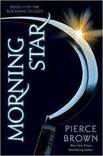
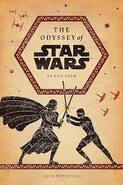
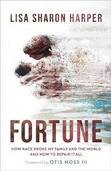

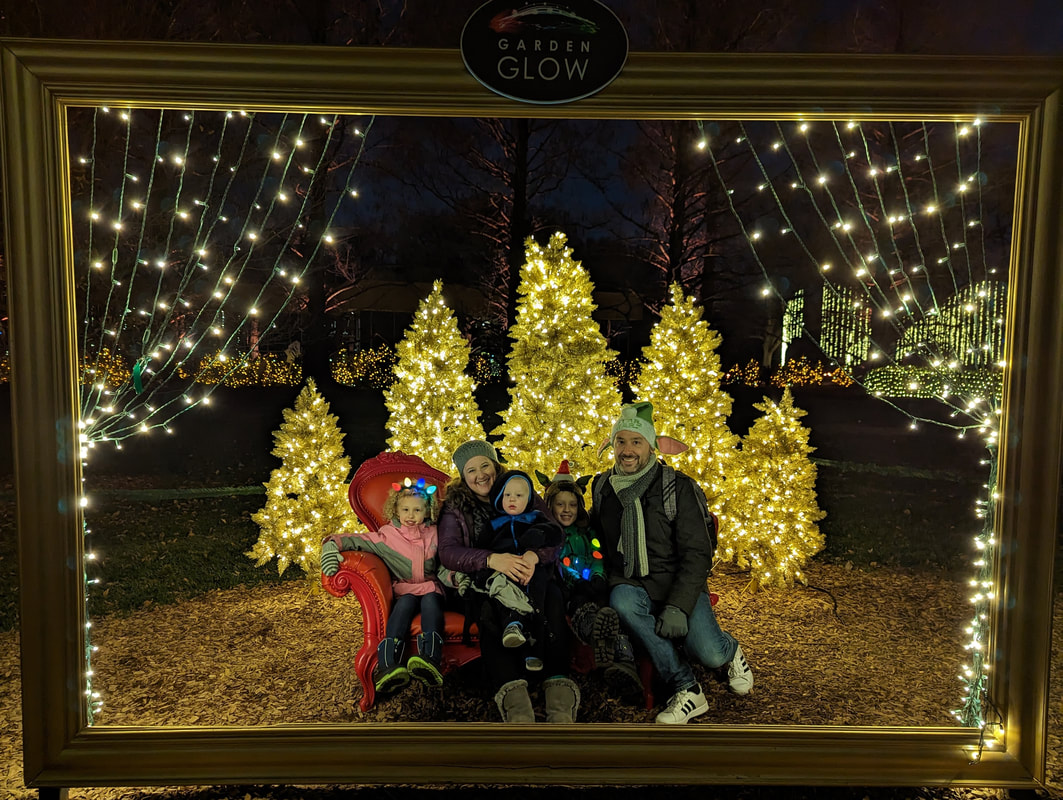
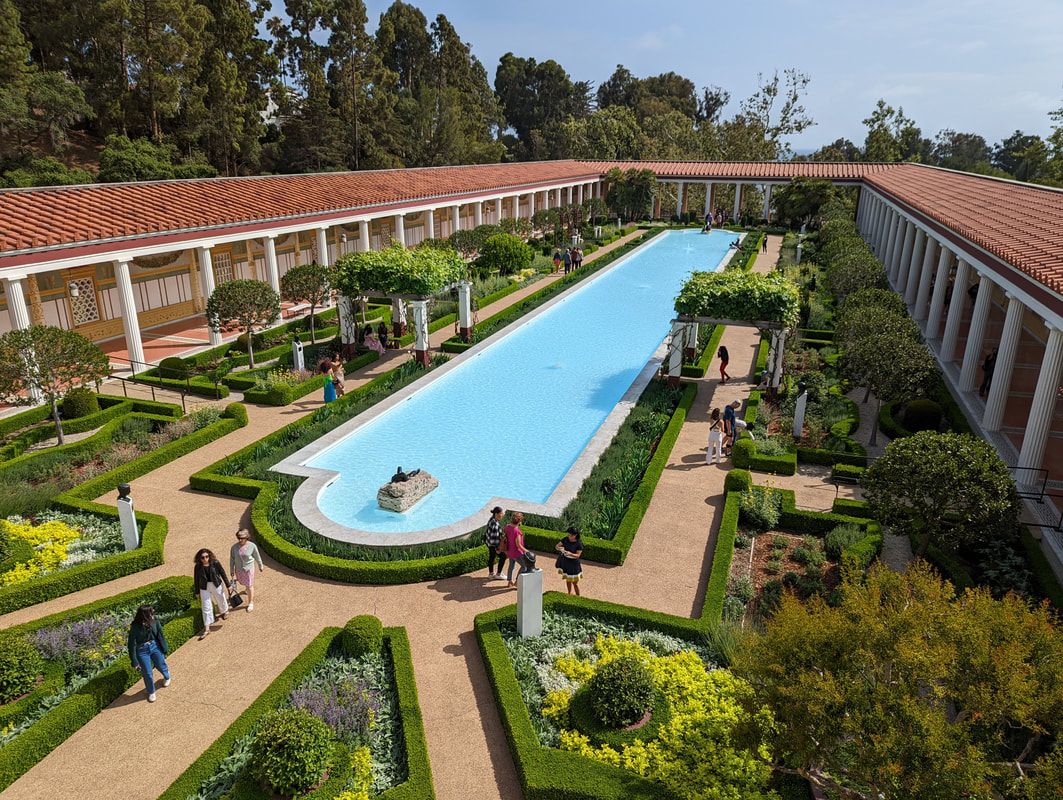
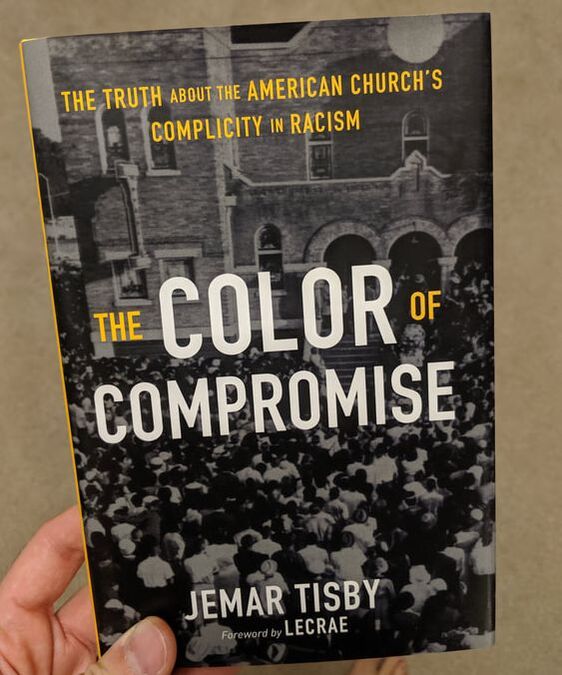
 RSS Feed
RSS Feed